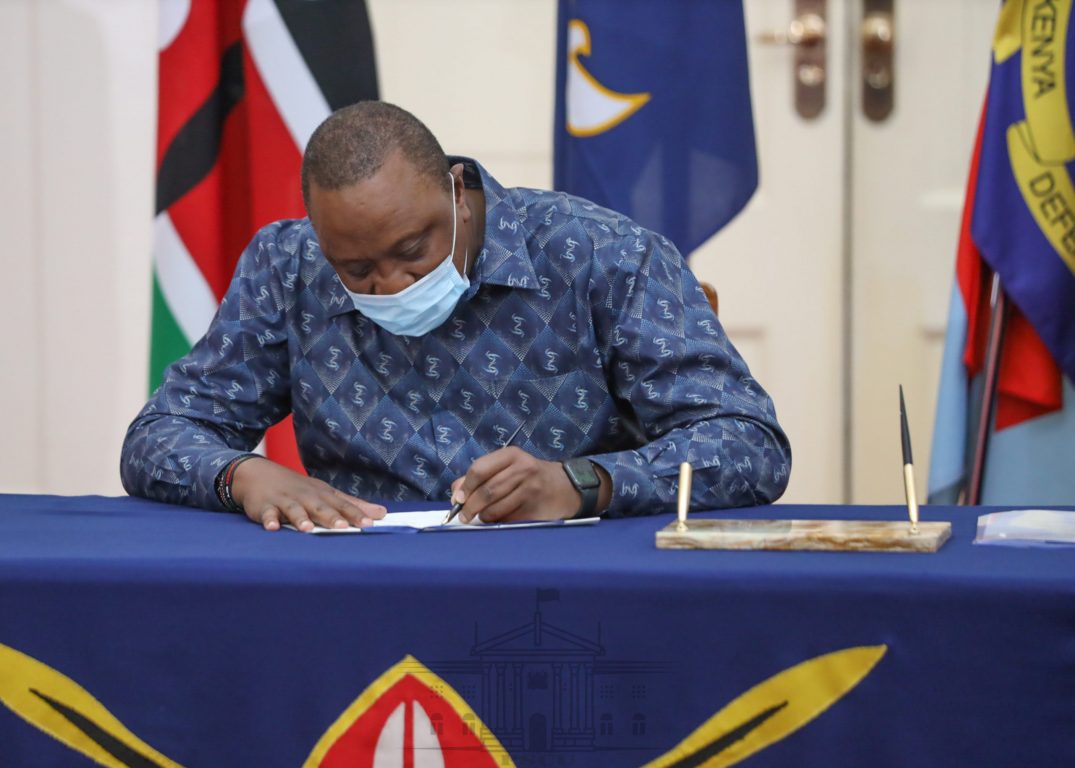Referral by H.E. the President of the Parliamentary Pensions (Amendment) Bill, 2019

Following the passing of the Parliamentary Pensions (Amendment) Bill (National Assembly Bill No. 45 of 2019) on 5th August, 2020, the National Assembly the same was presented to the President for assent which he has referred back to the Assembly for reconsideration.
The Bill had been sponsored by the Leader of the Minority Party, the Hon. John Mbadi, MP and its main object was to amend the Parliamentary Pensions Act and proposed to raise the amount of pension due to former Members of Parliament who served between 01st July, 1984 and 01st January, 2001 to a minimum sum of one hundred thousand shillings. This follows recommendations from the Akiwumi Tribunal report of November 2009 that recommended that each Member of Parliament be paid an equivalent of one thousand dollars each as living pension with effect from 01st July, 2010. The Parliamentary Service Commission adopted the report in June 2010 and resolved that any of the said former Members of Parliament earning a monthly pension of less than one hundred thousand shillings should be paid a monthly pension of one hundred thousand shillings.
Among the key concerns raised by the President vide a Memorandum dated 7th September, 2020 included;
- Members’ pensions under the Act are calculated according to the contributions paid into the Scheme during their parliamentary term. The proposed amendment fails to provide for such calculation, and makes no reference to the Members’ contributions;
- The Bill overlooks the mandate of the Salaries and Remuneration Commission under the Constitution, which comprises, among other things, the setting and review of remuneration and benefits for all State officers, who include Members of Parliament; and,
- The proposed pension payment will result in an annual cost implication of about four hundred and forty-four million shillings. Added to this, will be the almost certain demand for similar upward review of pension benefits by other retired State and public officers, which is within their rights to demand. The resultant ripple effect is unaffordable and fiscally unsustainable.
The concerns arise from the amendment proposed in Clause 2 of the Bill which sought to amend Section 8 of the Parliamentary Pensions Act to provide for the proposed entitlement for former Members of Parliament. Consequently, the President recommended deletion of the said Clause in the memorandum, which as a matter of fact, is the primary content of the Bill.
Standing Order 154(2) requires the House to consider the President’s Reservations within twenty-one (21) days upon receipt of the Memorandum. In this regard, the Reservations of the President, as contained in his Memorandum, now stand committed to the Departmental Committee on Finance and National Planning for consideration, which should table its report to allow the House to consider the President’s Reservations within the said timelines.
Moving forward, in order for the Bill to pass with amendments proposed by the Committee or any individual Member of the House that would accommodate the President’s reservations only a simple majority is required per Article 122(1) of the Constitution as read together with Article 115(2)(a).
On the other hand, an amendment that does not fully accommodate the President’s reservations, or indeed one that has the effect of a total override of the President’s reservations, including negating his proposed text, would require a two-thirds voting threshold to be passed in keeping with the provisions of Article 115(4) of the Constitution.

